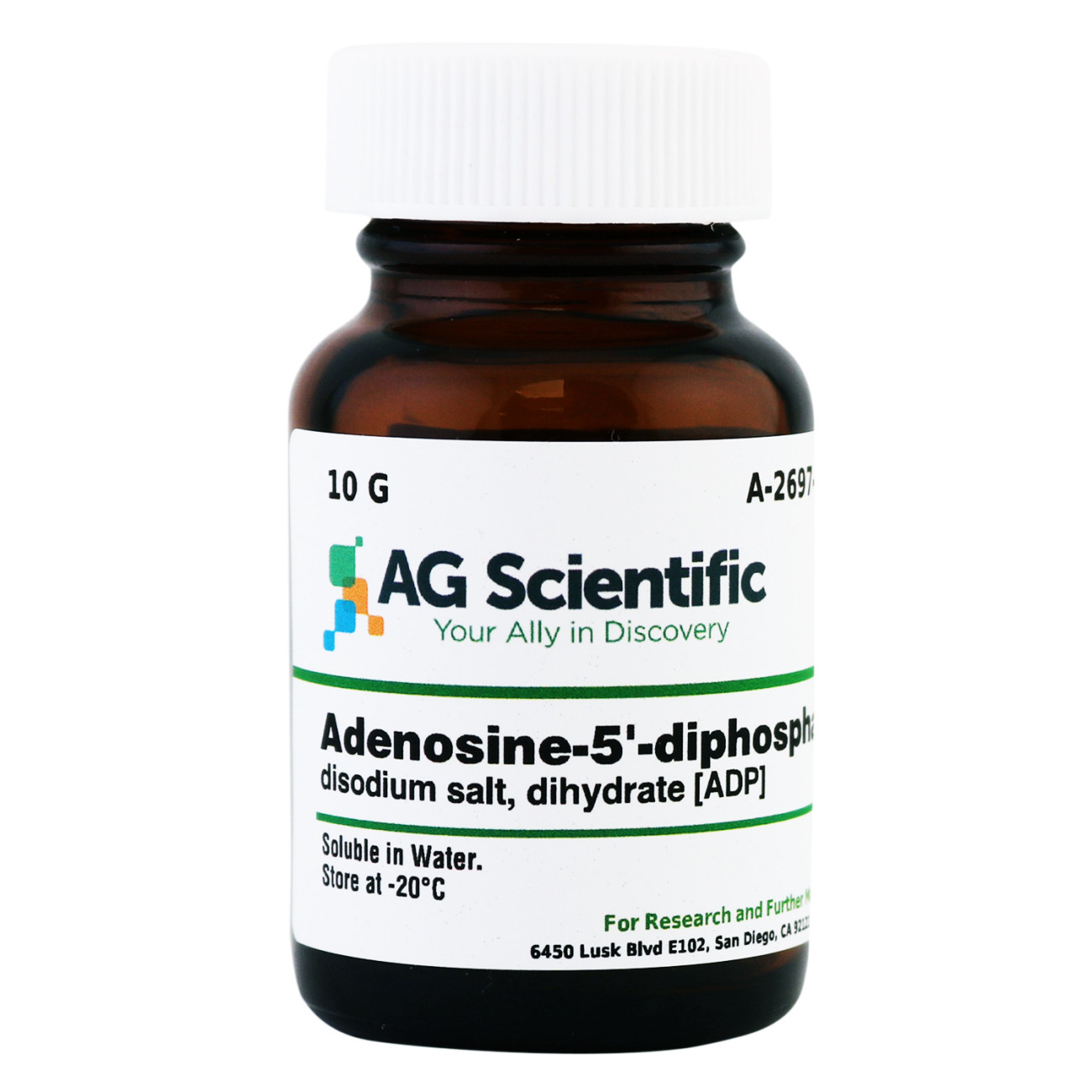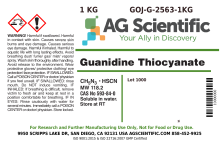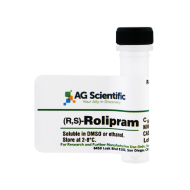Adenosine-5’-Diphosphate, Disodium Salt Dihydrate
16178-48-6
507.2
Water
-20°C
ADP stands for adenosine diphosphate, a molecule that plays a crucial role in energy metabolism. It is a nucleotide, which means it is composed of a nitrogenous base (adenine), a sugar (ribose), and two phosphate groups. ADP acts as an energy currency in cells, storing and transferring energy from metabolic processes to various cellular activities that require energy.
In cellular metabolism, ADP is converted to ATP (adenosine triphosphate) through a process known as oxidative phosphorylation. This process involves the transfer of a phosphate group from ADP to ATP, releasing energy in the process. The energy released from the conversion of ADP to ATP is then used by cells to perform a variety of functions, such as muscle contraction, protein synthesis, and DNA replication.
ADP is also involved in various cellular signaling pathways and plays a role in the regulation of blood clotting. It is a key component of the coagulation cascade, where it acts as a cofactor for several clotting factors, triggering the formation of a blood clot in response to injury.
0.1 lbs
Research or further manufacturing use only, not for food or drug use.




